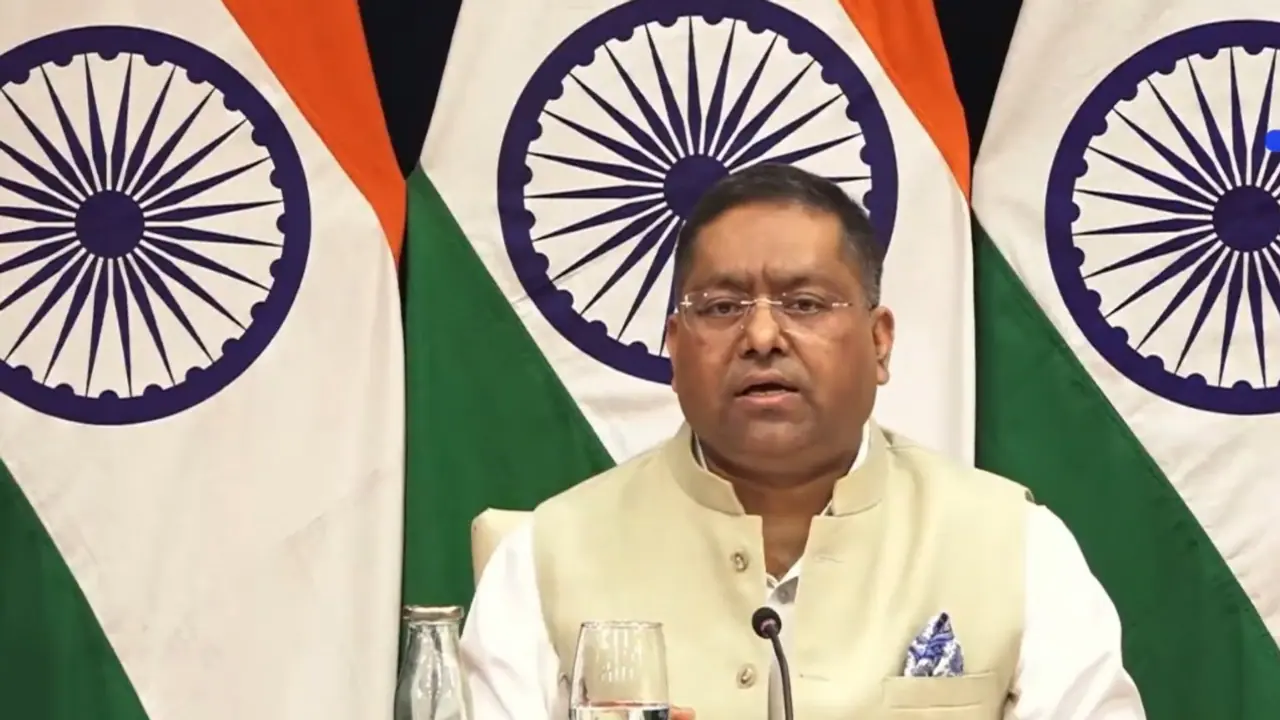MEA has reaffirmed India's firm stance on Jammu and Kashmir. MEA Spokesperson said that India has a long-standing national position that any issues pertaining to Jammu and Kashmir have to be addressed by India and Pakistan bilaterally.
India on Tuesday firmly restated that its position on Jammu and Kashmir remains unchanged and that the matter is entirely bilateral—meant to be resolved only between India and Pakistan. Addressing a regular press conference in New Delhi, Ministry of External Affairs (MEA) spokesperson Randhir Jaiswal made it clear that there is no shift in India's policy on the issue.

“We have a long-standing national position that any issues pertaining to the Union Territory of Jammu and Kashmir have to be addressed by India and Pakistan bilaterally. That stated policy has not changed,” Jaiswal said, underlining New Delhi’s consistent diplomatic stand over the decades.
Going a step further, the MEA spokesperson stated that the only issue India considers outstanding in the context of Jammu and Kashmir is the return of its territory that remains under Pakistan’s illegal occupation
“The outstanding matter is the vacation of illegally occupied Indian territory by Pakistan,” he asserted, referring to Pakistan-occupied Kashmir (PoK), which India considers an integral part of the country.
Jaiswal reiterated multiple times during the briefing that India’s policy has remained constant. “Our long-standing position is that the Kashmir issue has to be addressed bilaterally between India and Pakistan; that position has not changed,” he repeated for emphasis.
The timing of this strong statement is significant, coming soon after a fragile ceasefire came into effect following Operation Sindoor, India’s military response to recent terror incidents. It also signals that while India may be willing to reduce hostilities on the border, its position on Jammu and Kashmir remains firm and unchanged.
India has often rejected third-party mediation or international involvement in the Kashmir issue. Tuesday’s remarks make it clear that New Delhi continues to view talks on Jammu and Kashmir as a matter to be handled strictly between the two countries—and only after Pakistan stops supporting cross-border terrorism.
Tensions between India and Pakistan escalated after the terror attack in Pahalgam in April 2025, which left several civilians and soldiers dead. India blamed Pakistan-backed terror groups for the strike. In response, India launched Operation Sindoor, a precision military campaign targeting terror infrastructure across the Line of Control. Though both countries agreed to a ceasefire after the operation, distrust remains. India has tightened its security, reviewed diplomatic engagement, and demanded that Pakistan stop supporting terrorism. Meanwhile, public sentiment in India has grown more hostile towards Pakistan, with calls for stronger action and no talks unless Pakistan acts against terror networks.


